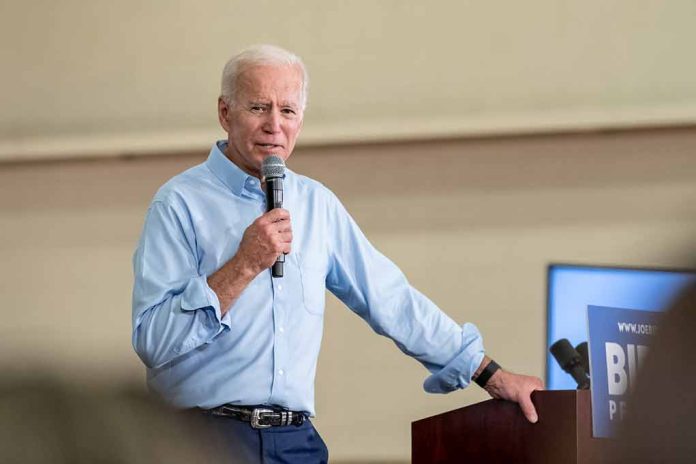
President Joe Biden’s recent announcement of over $1 billion in humanitarian aid to Sub-Saharan Africa comes amid significant geopolitical shifts and challenges.
At a Glance
- The US commits over $1 billion in humanitarian assistance to Sub-Saharan Africa.
- The aid aims to address food insecurity and the needs of displaced individuals in 31 African nations.
- Biden’s visit to Angola underscores US efforts to counter China’s growing influence in the region.
- The US and EU support a railway project linking mineral-rich DRC, Zambia, and Angola.
Biden’s Generous Gesture
Joe Biden announced more than $1 billion in humanitarian support during his visit to Angola, the first by a sitting US president. This substantial aid package seeks to provide relief for displaced individuals in 31 African countries affected by historical droughts and food insecurity. The US aims to mitigate the increasing displacement crisis, which has escalated sixfold from 2009 to 2023.
Biden’s remarks emphasized a shift in US-African relations from a patron-client model to a real partnership. As he noted during his visit, “what can we do together with the people of Africa” reflects the administration’s approach to building mutually beneficial relationships.
This week, the United States announced nearly $1 billion in lifesaving humanitarian aid for the crises in the Horn of Africa, Sahel, Sudan, and eastern Democratic Republic of the Congo.
My commitment to the people of Africa, their prosperity, and their peace is unwavering.
— President Biden (@POTUS) August 9, 2024
Strategic Concerns
The US aid package is not without underlying strategic motives, as it coincides with efforts to counter China’s extensive investments in Africa. China has been involved in major infrastructure projects, raising concerns about its expanding influence. President Biden’s itinerary in Angola, including plans to visit the port of Lobito, supports a new infrastructure initiative aimed at transporting minerals from inland countries to Angola’s coast.
The Lobito Corridor railway project, developed with US and EU financing, intends to link mineral-rich areas in the Democratic Republic of Congo (DRC) and Zambia with Lobito, facilitating mineral exports to the West while minimizing reliance on Chinese trade routes.
Historical Context
Biden’s visit to Angola carried historical significance, as he addressed the legacy of slavery in the region. Angola was a vital source of slaves for the Americas from the 1500s, a painful chapter acknowledged by Biden as America’s “original sin.” He visited the national slavery museum, a symbol of this heritage, located on the site of an 18th-century slave trading post. Here, he reflected on the atrocities of the past while acknowledging Portugal’s decree to end the slave trade in 1836.
Biden also expressed gratitude to Angolan President Joao Lourenco for his role in mediating conflicts and taking a stand against Russia’s actions in Ukraine. Both leaders discussed contributing efforts to enhance regional stability and prosperity.
Sources
- Biden announces $1bn humanitarian aid for Africa
- Biden announces over $1B in humanitarian aid for displaced Africans
- Biden Pledges $1 Billion in Aid for Displaced Africans

















